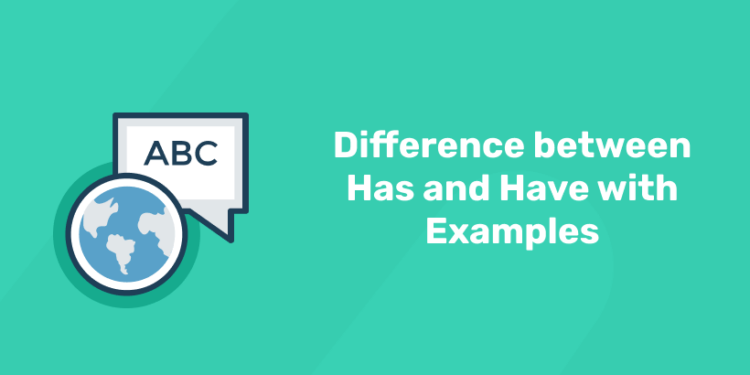Table of Contents
The words ‘has’ and ‘have’ tend to be confusing. English grammar is not as easy as we think. However, regular practice can make you proficient.
The words “has” and “have” both come from the verb “to have.” To have means to possess or hold something. It also means to experience or undergo something. “Has” and “have” both mean the same thing as “to have.”
Elevate your speaking skills with our Spoken English Course!
When can we use Have or Has?
It’s all to do with who we are talking about. Whether you use have or has depends on the point of view you are using. Luckily, you only use has when talking in the third-person singular (that’s grammar jargon for using he, she, or it in a sentence).
If you’re not using he, she, or it, you can almost always use “have.”
When can we use Have?
We use have when we talk about ourselves in the first person perspective (using I), when addressing someone else directly in the second person perspective (using you), or when referring to multiple people in the third person plural (using they).
Here are some examples:
- I have a pen.
- You have a pencil.
- They have roses.
In all of the examples above , have is used to indicate ownership.
Now look at these:
- I have seen that movie.
- You have been there, right?
- They have worked hard on this subject.
In these examples, have is used to show that the subject of the sentence (I, you, they) has been through an experience (seeing the movie, going to a place, working on a project).
When can we use Has?
We use has when talking about someone or something else in the third person singular. That means that if you’re referring to just one person or thing, and you’re not using “I” or “you” to refer to them, you need to use has.
Here are some examples:
- She has red hair.
- He has eight siblings.
- It has many special features.
As before, in all those above examples, it indicates ownership.
Now look at these:
- She has been to market.
- He has learned how to crochet.
- It has fallen over that table.
Table Summarizing the Difference between Has and Have
| Has | Have | |
| Meaning | Two different forms of the verb ‘to have’ that primarily mean ‘possession’, or to ‘hold something’. | |
| Usage rule | Primarily used with subject pronouns such as ‘he’ and ‘she’. | Used with pronouns such as ‘I’, ‘we,’ ‘you’ etc. |
| Implementation | It should be used only in the third person. | Can be used in first (I), second (you) or third person (they). |
| Example | He has the bus. | I have the have. |
| Type of Verb | Generally used as an auxiliary or main verb | Used as a main verb or auxiliary verb depending on the context. |
The two words ‘have’ and ‘has’ are often confused because they sound similar. However, they are two different forms of the verb “to have”.
“Have” is a verb that means to possess something or to do something. For example, ‘I have a bus.’ or ‘I have a pen.’ ‘Has’ is also a verb that means the subject has done something at some point in their life. For example, ‘He has been to London.’
Regardless, the use of ‘have’ and ‘has’ is rather complex in English grammar. They are both irregular verbs, but they don’t follow the same pattern. One is used to describe possession, while the other is used to describe the completion of an action. The confusion that arises in distinguishing the two is made worse by the fact that they are derivatives of the verb ‘to have’.
Join our Spoken English program today and communicate with ease!
Using of Have and Has in the Same Sentence
For example:
- She has red socks, but I have blue socks.
- He has seen movies that have not been released yet.
You might also use the phrase “has to have” in your sentence to mean “must have”:
- She has to have the correct uniform to attend school.
- Jane is a perfectionist. She has to have everything planned down to the last detail.
Elevate your speaking skills with our Spoken English Course!
FAQs on Have and Has
1. Can we use Have and Has in the Same Sentence?
Ans. Yes, of course! Just use the same rules we’ve already covered.
2. What Is the Difference Between Hasn’t and Haven’t?
Ans. Hasn’t and haven’t are negative contractions of has and have. They mean “has not” and “have not” respectively.
3. Is It “Which Have” or “Which Has”?
Ans. This depends on the subject of your sentence. Remember, we only use “which” with non-human subjects.
| Related Articles | |
| Interrogative Sentence | Present continuous tense |
| what are Prepositions | Helping verbs |
| English Grammar Learning Tips | Mastering the Tenses in English |










